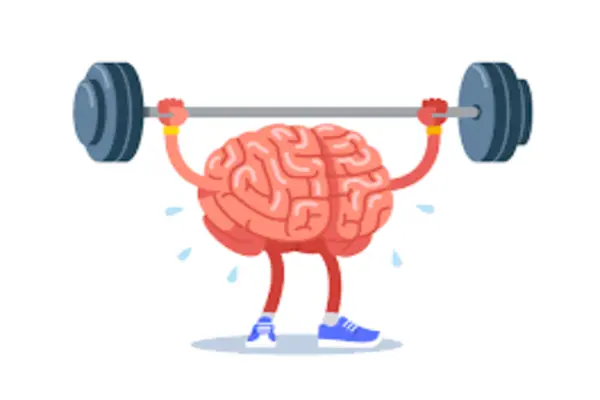Exercise is not just beneficial for physical fitness—it also has profound effects on mental health. Research consistently shows that regular physical activity improves mood, alleviates symptoms of mental illnesses, and promotes emotional resilience. In this article, we explore how exercise influences mental well-being, the scientific mechanisms behind it, and practical ways to integrate fitness into your daily routine to support mental health.
How Exercise Positively Impacts Mental Health
- Mood Enhancement and Reduced Stress Exercise triggers the release of endorphins, commonly known as “feel-good” chemicals, which help relieve stress and improve mood. Physical activity also increases the production of neurotransmitters such as serotonin and dopamine, which are associated with happiness and motivation. Studies suggest that people who engage in regular aerobic activities like jogging or cycling are less likely to experience depressive symptoms than those with a sedentary lifestyle.
- Reduction in Anxiety and Depression Symptoms Exercise is known to function as a natural antidepressant. Research indicates that even moderate physical activity, like brisk walking, can significantly reduce anxiety and mild to moderate depression levels. Regular exercise improves self-esteem, offers a sense of accomplishment, and can act as a healthy coping strategy for managing stress and negative emotions.
- Cognitive Function and Emotional Resilience Exercise enhances brain function by promoting the growth of new neurons in the hippocampus, an area crucial for memory and learning. It also strengthens emotional regulation by improving the connection between the brain’s emotional and logical centers. This results in greater emotional resilience, helping individuals better manage stress and challenging situations.
- Social Benefits of Physical Activity Group exercises and sports activities provide opportunities for social interaction and foster community engagement, which can alleviate feelings of loneliness. Social support is a key factor in reducing mental health issues and improving overall well-being. Activities like yoga classes or team sports allow participants to build meaningful connections, contributing to better mental health.
The Science Behind the Exercise-Mental Health Link
- Brain Chemistry and Neurotransmitters Physical activity influences the levels of serotonin and dopamine, neurotransmitters that are linked to positive emotions. These chemicals play a vital role in stabilizing mood and reducing symptoms of mental disorders such as depression. Moreover, exercise helps regulate cortisol, the body’s stress hormone, keeping stress levels in check.
- Neuroplasticity and Brain Health Exercise enhances neuroplasticity, which refers to the brain’s ability to adapt and reorganize itself. Aerobic activities, in particular, promote the release of brain-derived neurotrophic factor (BDNF), a protein that supports the growth of new neurons. This improves cognitive functions like memory, attention, and decision-making abilities.
- The Role of the Endocannabinoid System Exercise activates the endocannabinoid system, which is associated with feelings of calmness and reduced anxiety. The “runner’s high” phenomenon, a sense of euphoria experienced during sustained physical activity, is partly due to the release of endocannabinoids, which promote relaxation and reduce discomfort.
Types of Exercise Beneficial for Mental Health
- Aerobic Exercises Activities like running, swimming, or dancing have been found to be particularly effective in alleviating depression and anxiety. Engaging in aerobic exercises at least three times a week can lead to significant improvements in mood and cognitive performance.
- Strength Training In addition to building physical strength, resistance training reduces anxiety and improves self-confidence. Research suggests that strength training can positively impact mood, especially in individuals with depression.
- Yoga and Mindfulness Exercises Yoga combines physical movement with mindfulness, focusing on breathing and relaxation techniques. It is effective in reducing stress, improving mood, and enhancing emotional regulation, contributing to overall mental wellness.
Practical Tips to Incorporate Exercise for Better Mental Health
- Start Small and Set Realistic Goals Begin with short walks, stretching, or light workouts if you’re new to exercising. Setting small, achievable goals can help build consistency and prevent burnout. Gradually increase the intensity and duration as you develop a routine.
- Find Activities You Enjoy Engaging in activities you enjoy makes it easier to stick to a fitness routine. Whether it’s dancing, hiking, or playing sports, doing what you love enhances the likelihood of long-term commitment.
- Exercise with Others Exercising with a friend or joining a fitness class can make the experience more enjoyable. Social support not only helps you stay motivated but also adds a sense of accountability.
- Incorporate Exercise into Daily Activities Small lifestyle changes, such as taking the stairs instead of the elevator, biking to work, or doing household chores, can contribute to your overall activity levels. Incorporating movement into your daily routine ensures you remain physically active without needing dedicated gym time.
- Listen to Your Body It’s essential to balance physical activity with rest. Overtraining can lead to fatigue and negatively impact mental health. Pay attention to your body’s signals and allow time for recovery to maintain both physical and emotional well-being.
Conclusion
The connection between exercise and mental health is well-established, with numerous studies highlighting the benefits of physical activity for emotional well-being. Exercise not only improves mood, reduces anxiety, and alleviates depression but also enhances cognitive functions and fosters emotional resilience. Incorporating physical activity into your daily routine can significantly enhance your quality of life, promoting a healthy mind and body. Whether you choose aerobic exercises, strength training, or yoga, the key is consistency and finding activities that bring joy. Start small, stay active, and experience the transformative power of exercise on your mental health.
